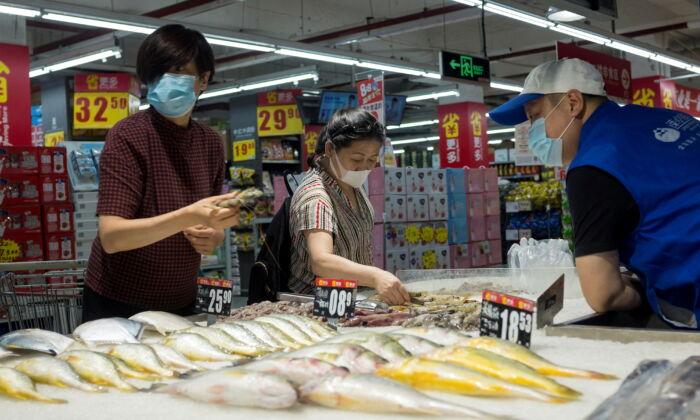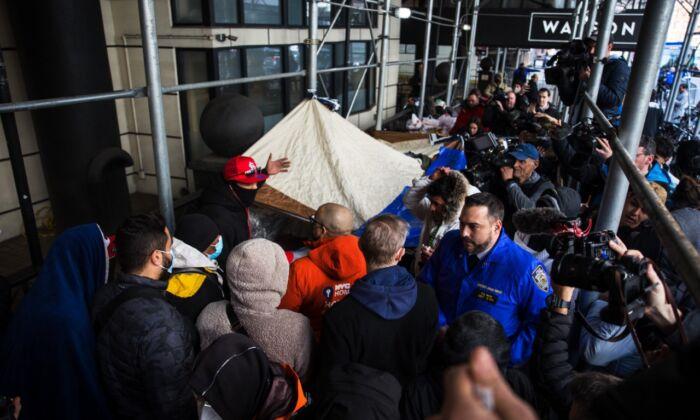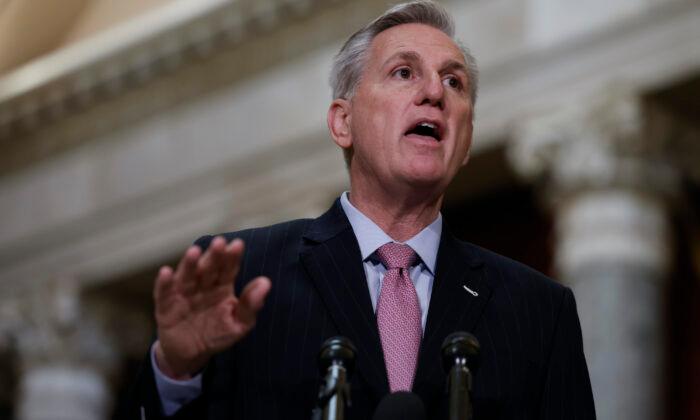Both China’s factory gate and consumer inflation rose at a slower pace in December, following the fall of some raw material prices, official data showed on Jan. 12.
Consumer price inflation also slowed last month as food prices fell, the National Bureau of Statistics (NBS) said in a statement.
China’s consumer price index (CPI) grew 1.5 percent year-on-year in December, compared to a 2.3 percent annual growth a month earlier. Food prices fell 1.2 percent year on year, as pork fell 36.7 percent and fresh vegetable prices rose 10.6 percent—in contrast to the 30.6 percent jump on a yearly basis in November.
COVID-19 outbreaks swept a number of Chinese cities in December, including Xi’an, the largest economy of the Shaanxi province, but the consumer market was stable overall, said Dong Lijuan, a senior statistician at the NBS in an affiliated statement.
Over the full year of 2021, the country’s PPI grew by 8.1 percent, while CPI rose 0.9 percent on annual basis, down from a 2.5 percent gain in 2020.
“Lower inflation opens room for the government to loosen monetary policies further. The probability of (an) interest rate cut is rising, in our view,” said Zhiwei Zhang, chief economist at Pinpoint Asset Management, in a note.
China’s economy is facing a series of headwinds in 2022, including property woes, a slowing manufacturing sector, and COVID-19 outbreaks as the world battles the Omicron variant.
Chinese cities are already advising people to stay put for the Lunar New Year, a peak travel period, due to fresh coronavirus outbreaks in several regions.
China’s central bank has said it will keep monetary policy flexible in 2022 as it seeks to stabilize growth and lower financing costs for businesses amid growing economic headwinds.




